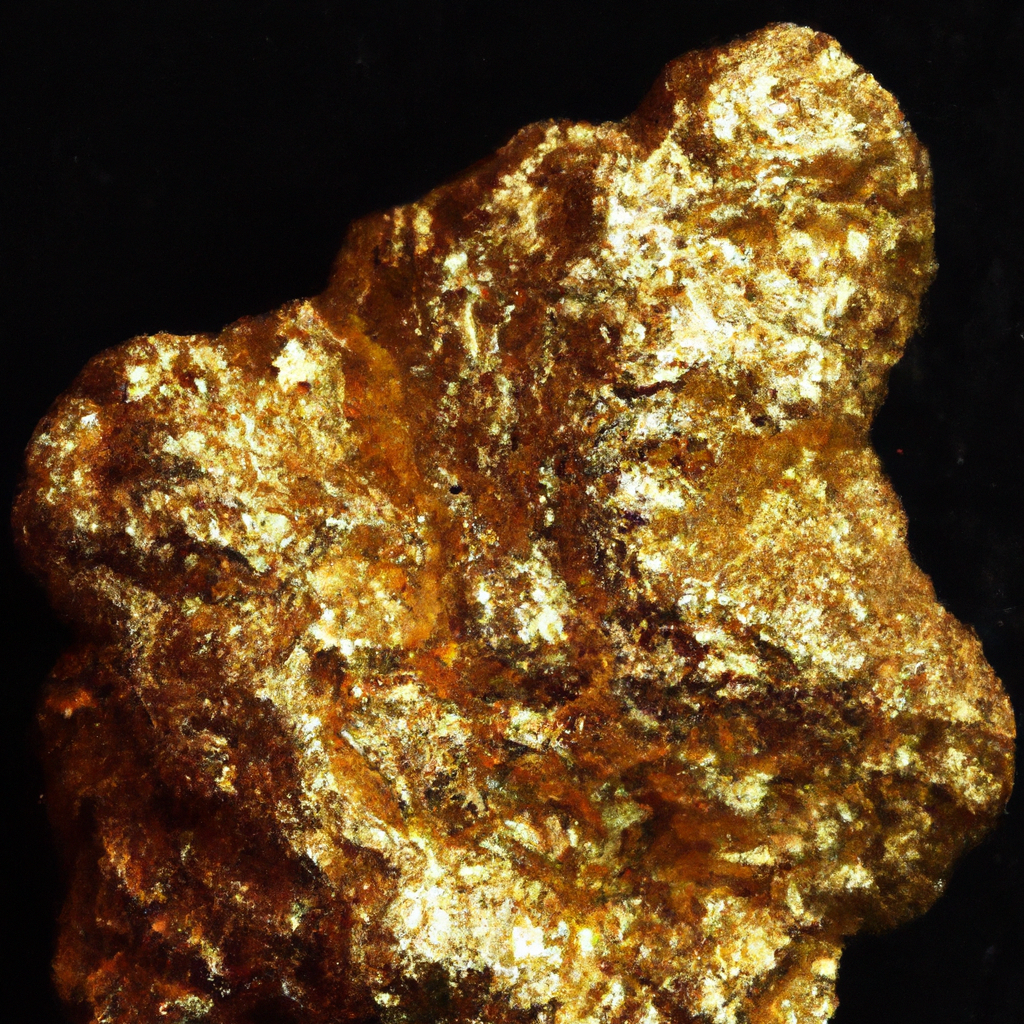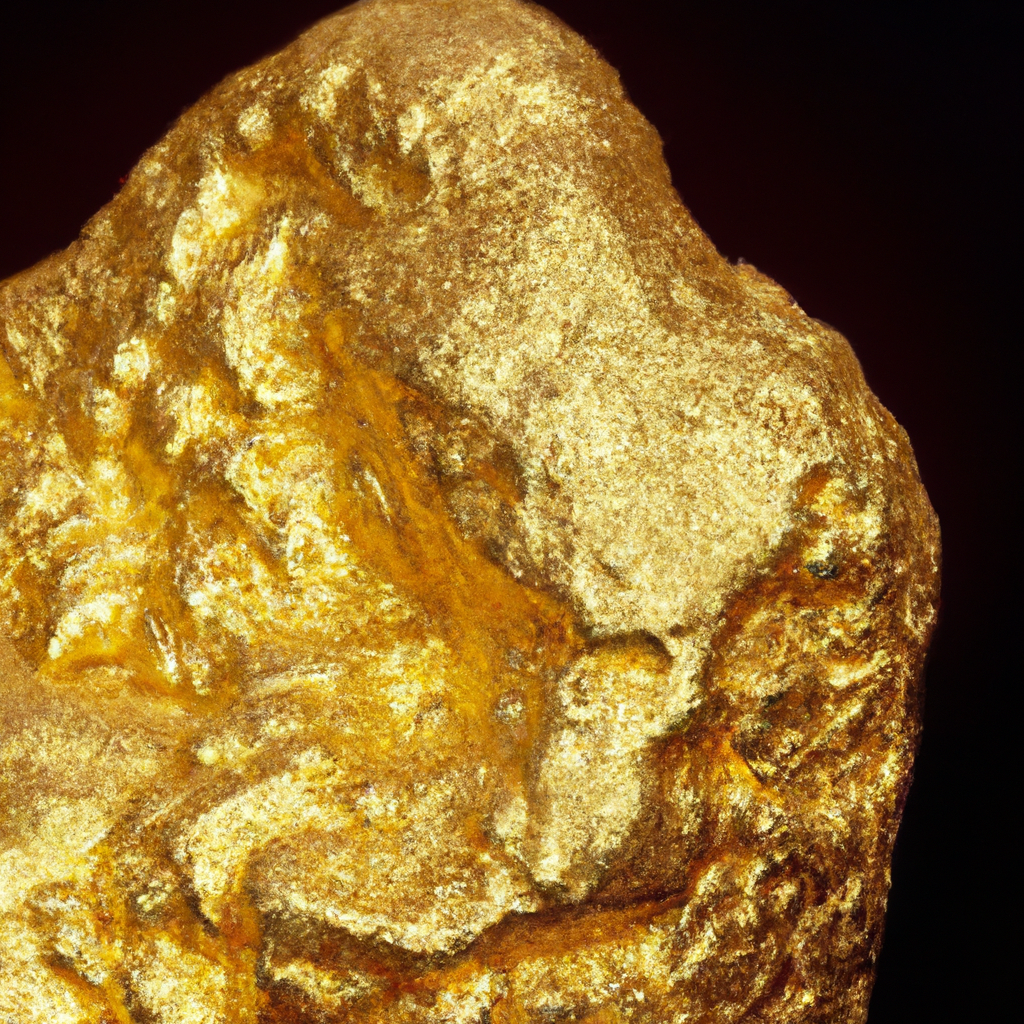Curious about the potential impact of gold discoveries and new mining projects in Malaysia? This captivating article explores the implications of these exciting developments, focusing on the perspective of a fund manager and gold investment expert. With a friendly tone and engaging format, this piece aims to entice readers to delve into the topic further. Packed with over 2500 words of insightful content, this article is accompanied by relevant videos and properly tagged images to enhance the reader’s experience. Join us on this informative journey as we uncover the fascinating world of gold discoveries and mining projects in Malaysia.

Environmental Impact
Deforestation and habitat destruction
Gold mining projects in Malaysia often lead to deforestation and habitat destruction. Large areas of forest land are cleared to make way for mining operations, resulting in the loss of important ecosystems and biodiversity. The destruction of forests also leads to the displacement of wildlife, impacting their survival and disrupting the delicate balance of the local ecosystem.
Water pollution
Mining activities, particularly the use of chemicals such as cyanide, can contaminate water sources in surrounding areas. The process of extracting gold from ore often involves the use of these toxic chemicals, which can leach into the soil and pollute nearby rivers, lakes, and groundwater. This pollution not only affects aquatic life but also poses a serious threat to the health and well-being of local communities who rely on these water sources for drinking and irrigation.
Soil erosion
Gold mining projects can result in significant soil erosion. The removal of vegetation and the excavation of land can expose bare soil to the elements, leading to erosion and loss of topsoil. This erosion can have long-term consequences for agricultural activities and can contribute to the degradation of surrounding landscapes.
Economic Benefits and Challenges
Job creation
One of the key economic benefits of gold discoveries and new mining projects in Malaysia is the potential for job creation. The mining industry provides employment opportunities for both skilled and unskilled workers, supporting local economies and improving livelihoods. These jobs not only benefit the individuals but also contribute to the overall development of the region.
Increase in GDP
Gold mining projects can have a positive impact on the country’s Gross Domestic Product (GDP). The extraction and processing of gold contribute to the overall production and output of the economy, leading to economic growth and increased income levels. The revenue generated from gold mining activities can be used to fund various sectors, such as infrastructure development and social welfare programs.
Revenue generation for government
Gold mining projects can be a significant source of revenue for the government through various channels. Governments often impose royalties and taxes on mining operations, ensuring that a portion of the profits generated from gold mining activities goes back to the state. This revenue can then be utilized for public services, education, healthcare, and other development initiatives.
Challenges in managing resource allocation
While there are economic benefits associated with gold discoveries and mining projects, there are also challenges in managing resource allocation. These challenges include ensuring equitable distribution of wealth, preventing corruption and bribery, and addressing potential social and environmental issues. It is crucial for governments to carefully manage the allocation of resources to ensure sustainable development and the well-being of all stakeholders.

Social Effects
Community displacement
Gold mining projects can lead to the displacement of local communities. The acquisition of land for mining operations often requires the relocation of communities residing in those areas. This displacement can disrupt social structures, cultural practices, and traditional livelihoods, causing social and economic upheaval for affected communities.
Conflict with indigenous people
Indigenous communities are often disproportionately affected by gold mining projects. These communities often have deep connections to their ancestral lands, which are rich in natural resources such as gold. The encroachment of mining activities on their territories can lead to conflicts over land rights, cultural heritage, and the preservation of their way of life.
Health and safety concerns
Gold mining operations can pose significant health and safety concerns for workers and local communities. The use of harmful chemicals, inadequate safety measures, and poor working conditions can lead to serious health hazards, such as respiratory diseases, skin conditions, and accidents. It is essential for mining companies and regulatory bodies to prioritize the health and safety of individuals involved in mining activities.
Technological Advancements
Modern mining techniques
Advancements in mining technology have revolutionized the gold mining industry. Modern mining techniques, such as open-pit mining and underground mining, allow for more efficient and cost-effective extraction of gold. These techniques not only increase productivity but also minimize the environmental impact of mining operations.
Use of advanced equipment
The use of advanced equipment in gold mining has significantly improved the efficiency and accuracy of the extraction process. Heavy machinery, such as excavators, bulldozers, and crushers, is used to remove and process large volumes of ore, reducing the need for manual labor and increasing overall productivity. These advancements in equipment have streamlined mining operations while minimizing the physical strain on workers.
Improvement in extraction efficiency
Technological advancements have also led to improvements in extraction efficiency. New methods, such as carbon-in-pulp and carbon-in-leach, have been developed to extract gold from ore more effectively. These techniques involve the use of activated carbon, which adsorbs the gold particles, allowing for easier separation and recovery. The improved extraction efficiency helps maximize the yield of gold from the ore, optimizing the profitability of mining operations.

Market Influence
Impact on gold prices
Gold mining projects and discoveries can have a significant impact on gold prices in the global market. The increase in the supply of gold resulting from new mining projects can potentially lower prices if the demand remains constant. On the other hand, major gold discoveries or disruptions in the supply chain can lead to a surge in gold prices, attracting investors and affecting the overall market dynamics.
Investment opportunities
Gold mining projects offer investment opportunities for individuals and companies looking to diversify their portfolios. Investing in gold mining companies or funds allows investors to participate in the potential profits and growth of the industry. Gold has long been considered a safe-haven investment, particularly during times of economic uncertainty, making it an attractive option for investors seeking stability and potential returns.
Global market dynamics
Gold mining projects in Malaysia can impact the global gold market dynamics. The production and export of gold from Malaysia can influence the overall supply and demand balance in the global market. Changes in the domestic gold industry, such as production levels, regulations, or market trends, can have ripple effects on gold prices and trading activities worldwide.
Legal and Regulatory Framework
Licensing and permit requirements
Gold mining projects in Malaysia are subject to various licensing and permit requirements imposed by the government. These requirements ensure that mining activities adhere to environmental and safety standards and protect the interests of local communities. Obtaining the necessary licenses and permits can be a complex process, involving compliance with regulations and strict monitoring by regulatory authorities.
Environmental regulations
Mining operations in Malaysia are governed by environmental regulations aimed at minimizing the negative impact on the environment. These regulations specify guidelines for waste management, land restoration, and water pollution prevention. Mining companies are required to implement measures to mitigate environmental risks and to rehabilitate the land after mining activities have ceased.
Tax policies and incentives
The government of Malaysia has implemented tax policies and incentives to promote and regulate the gold mining sector. Taxes, such as royalties and income taxes, are levied on mining activities to generate revenue for the government. Incentives, such as tax breaks or exemptions, may also be provided to encourage investment in the mining industry and stimulate economic growth.

Governmental Role
Government support and incentives
The government plays a crucial role in supporting and promoting the gold mining industry in Malaysia. It provides financial support, infrastructure development, and technical assistance to attract investments and facilitate mining operations. Government incentives, such as tax breaks, can also encourage companies to engage in responsible and sustainable mining practices.
Monitoring and enforcement
Governments are responsible for monitoring and enforcing compliance with mining regulations and standards. Regulatory agencies oversee mining activities, conduct inspections, and ensure that mining companies adhere to environmental, health, and safety protocols. Monitoring and enforcement are essential to prevent violations, mitigate risks, and protect the interests of local communities and the environment.
Balancing economic and environmental concerns
The government faces the challenge of balancing economic development with environmental preservation. It must ensure that gold mining projects contribute to economic growth while mitigating negative impacts on the environment and society. Striking a balance involves making informed decisions, implementing effective regulations, and engaging in dialogue with stakeholders to achieve sustainable development in the mining sector.
Foreign Investments
Attracting foreign investments
Gold discoveries and new mining projects in Malaysia can attract foreign investments, contributing to the growth of the industry and the overall economy. The government actively promotes the country as an attractive investment destination by offering incentives, streamlining regulatory processes, and showcasing potential opportunities for foreign investors. Foreign investments bring in capital, expertise, and technological advancements, stimulating job creation and economic development.
Joint ventures and partnerships
Foreign investments in gold mining projects often involve joint ventures and partnerships with local companies. These collaborations enable the sharing of resources, knowledge, and technology, maximizing the potential for success. Joint ventures and partnerships also foster cooperation between different stakeholders, enhancing the sustainability and socio-economic impact of mining operations.
Technology transfer
Foreign investments in gold mining projects can facilitate the transfer of technology and knowledge to Malaysia. International investors may bring advanced mining techniques, equipment, and best practices to improve the efficiency and sustainability of mining operations. Technology transfer contributes to the development of the domestic mining industry and enhances the country’s capabilities in the extraction and processing of gold.

Regional Development
Infrastructure development
Gold mining projects can stimulate infrastructure development in the regions where they are located. Mining operations require the construction of roads, power supply facilities, and other infrastructure to support the transportation of equipment, supplies, and personnel. The development of infrastructure not only supports the mining industry but also benefits the local communities by improving connectivity and access to essential services.
Stimulating economic growth
Gold mining projects have the potential to stimulate economic growth in the surrounding regions. The influx of investment, job opportunities, and increased income levels can have multiplier effects on the local economy. Ancillary industries, such as transportation, hospitality, and retail, can experience growth as a result of mining activities, creating a ripple effect that extends beyond the mining sector.
Improving living standards
Regional development resulting from gold mining projects can contribute to the improvement of living standards for local communities. The creation of jobs, increased income levels, and access to infrastructure and essential services enhance the quality of life. Additionally, mining companies often have corporate social responsibility initiatives that invest in community development projects, education, healthcare, and other social welfare programs.
Sustainable Mining Practices
Promoting responsible mining
Promoting responsible mining practices is crucial for minimizing the negative environmental and social impacts of gold mining projects. This involves adhering to sustainable mining principles, implementing environmental management plans, and conducting regular environmental assessments. Responsible mining practices prioritize the well-being of local communities, protect ecosystems, and ensure the long-term viability of the mining operations.
Rehabilitation and restoration efforts
Gold mining projects should include plans for rehabilitation and restoration efforts. Upon completion of mining activities, companies are responsible for rehabilitating the land and restoring it as closely as possible to its original state. This entails soil conservation, reforestation, and water management measures to promote ecological recovery and preserve biodiversity.
Community engagement
Engaging with local communities is essential for the success and sustainability of gold mining projects. Mining companies should actively involve and consult with affected communities, respecting their rights, traditions, and cultural heritage. Community engagement entails meaningful dialogue, transparent communication, and the establishment of partnerships that promote mutual understanding, trust, and shared benefits.








